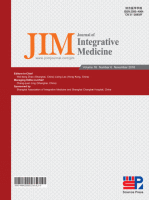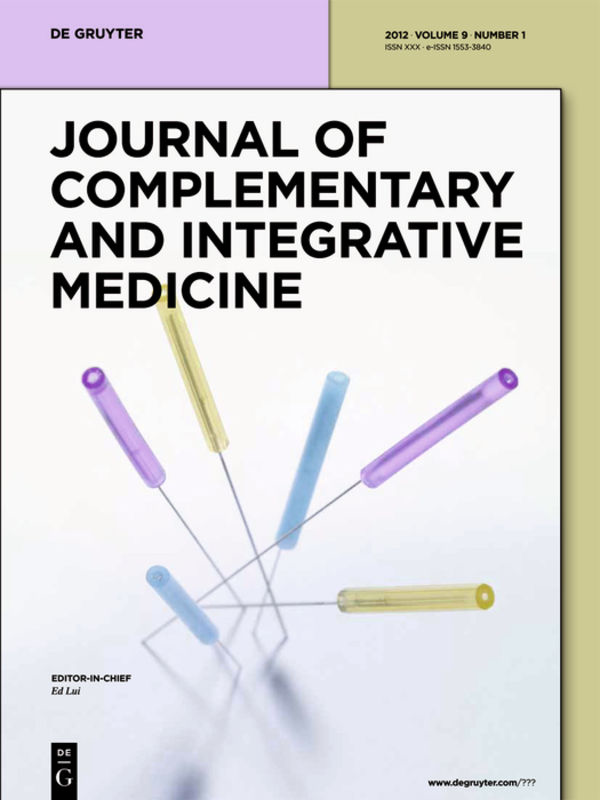Damask Rose
How to submit an article:
- Registered users can submit any published journal article that has a unique DOI (Digital Object Identifier) name or link to Research Hub.
- For example, you can paste the full DOI link:
https://doi.org/10.1109/5.771073or just the DOI name:10.1109/5.771073into the field above and click submit. - The person who is first to submit a valid article to Research Hub will forever be credited for it, and every article submission earns you +6 Research Points.
Related Topics
Published research studies are articles that present the findings of original research that has undergone a peer-review process and has been made publicly available in scholarly journals, books or other media.

Efficacy of the herbal formula of Foeniculum vulgare and Rosa damascena on elderly patients with functional constipation: A double-blind randomized controlled trial
2022 May Journal of Integrative Medicine Azimi M, Niayesh H, Raeiszadeh M, Khodabandeh-shahraki S
Although both interventions significantly improved the treatment outcomes, constipation severity, stool consistency and the quality of life were improved more effectively by the herbal formula than by PEG 4000; however, the mechanism of action is not yet understood.
Randomised Controlled Trial Constipation Damask Rose Xiao Hui Xiang
Compare the effect of aromatherapy using lavender and Damask rose essential oils on the level of anxiety and severity of pain following C-section: A double-blinded randomized clinical trial
2020 Sep 01 Journal of Complementary and Integrative Medicine Abbasijahromi A, Hojati H, Nikooei S, Jahromi HK, Dowlatkhah HR, Zarean V, et al.
Randomised Controlled Trial Caesarean Damask Rose Anxiety LavenderInhalation aromatherapy using Damask rose and lavender essential oils can reduce anxiety and pain in women after they have had a cesarean section.
Research insights are moderated by the Research Hub team and offer an at-a-glance overview of interesting research findings.

2020 Journal of Complementary and Integrative Medicine
Inhalation aromatherapy using Damask rose and lavender essential oils can reduce anxiety and pain in women after they have had a cesarean section.
Randomised Controlled Trial Anxiety Caesarean Lavender
Compare the effect of aromatherapy using lavender and Damask rose essential oils on the level of anxiety and severity of pain following C-section: A double-blinded randomized clinical trial
Abbasijahromi A, Hojati H, Nikooei S, Jahromi HK, Dowlatkhah HR, Zarean V, et al.
Review Articles
Review articles summarise and critically evaluate the current state of research on a specific topic or field by synthesising multiple primary research studies.
Clinical Trials
Clinical trials are research studies that involve people and are conducted to evaluate the safety and efficacy of new treatments or interventions, such as drugs, medical devices, or behavioural therapies.

Efficacy of the herbal formula of Foeniculum vulgare and Rosa damascena on elderly patients with functional constipation: A double-blind randomized controlled trial
2022 May Journal of Integrative Medicine Azimi M, Niayesh H, Raeiszadeh M, Khodabandeh-shahraki S
Although both interventions significantly improved the treatment outcomes, constipation severity, stool consistency and the quality of life were improved more effectively by the herbal formula than by PEG 4000; however, the mechanism of action is not yet understood.
Randomised Controlled Trial Constipation Damask Rose Xiao Hui Xiang
Compare the effect of aromatherapy using lavender and Damask rose essential oils on the level of anxiety and severity of pain following C-section: A double-blinded randomized clinical trial
2020 Sep 01 Journal of Complementary and Integrative Medicine Abbasijahromi A, Hojati H, Nikooei S, Jahromi HK, Dowlatkhah HR, Zarean V, et al.
Randomised Controlled Trial Caesarean Damask Rose Anxiety LavenderInhalation aromatherapy using Damask rose and lavender essential oils can reduce anxiety and pain in women after they have had a cesarean section.
Study Protocols
Published study protocols are detailed plans that outline the objectives, methodology, statistical analyses, and organisation of a research study that have been made publicly available for others to review and use as a reference.
Presentation Slides

Randomised Controlled Trial
Inhalation aromatherapy using Damask rose and lavender essential oils can reduce anxiety and pain in women after they have had a cesarean section.
Abbasijahromi A, Hojati H, Nikooei S, Jahromi HK, Dowlatkhah HR, Zarean V, Farzaneh M, Kalavani A
Executive Summary
Write an executive summary in the form of a blog article on the topic of "Research into Chinese medicine treatment for Damask Rose" summarising the research below and using language that can be easily understood by patients and avoiding medical jargon using a professional and caring tone of voice.
Write an executive summary in the form of a blog article on the topic of "Researched Chinese medicine treatments for Damask Rose" summarising the research below in an objective and easy to understand way, and using language that can be easily understood by patients. Group the article into Chinese medicine treatments first, followed by nutrition and other treatments. Avoid using medical jargon and use a professional and caring tone of voice.
Write me a concise but easy to understand executive summary on the topic of "Chinese medicine treatments for Damask Rose" based on the following research that I will give you. Your summary should be 2 paragraphs long in Australian English spelling and include references to the studies.
A Randomised Controlled Trial published in 2020 in the journal Journal of Complementary and Integrative Medicine found that Inhalation aromatherapy using Damask rose and lavender essential oils can reduce anxiety and pain in women after they have had a cesarean section. This study was a randomized clinical trial involving 90 mothers who had cesarean sections at a hospital in Jahrom, Iran, in 2017. Prior to intervention, the incidences and severities of pain and anxiety were measured for all participants. The two intervention groups underwent aromatherapy with Damask rose and lavender essential oils. The participants were given cotton balls stained with three drops of these essential oils to inhale from a distance of 10cm for 30 minutes. The control group went through similar procedure but with normal saline. Pain and anxiety levels were assessed using established scales 5 minutes after the specified process. Following the interventions, the two aromatherapy groups experienced significantly different pain and anxiety levels compared to the control group. The results showed no tangible difference between the pain and anxiety levels of those who inhaled lavender oil and those who inhaled Damask rose oil.
Moderation Tools
Topic
Sign In
Users not signed in are limited to viewing the 5 most recent items of content.